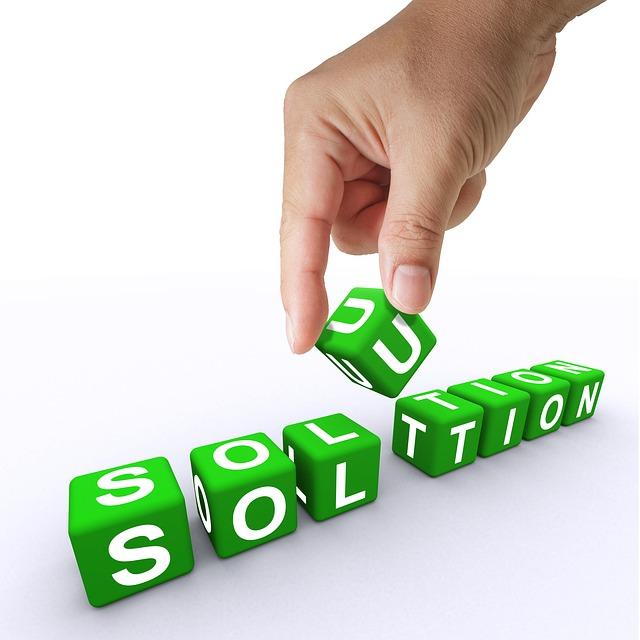Spain Strengthens Dedication to Lowering Meals Waste with New Laws
In a daring step in the direction of sustainability, Spain has enacted new laws aimed toward considerably decreasing meals waste throughout the nation. This initiative underscores the Spanish authorities’s recognition of the urgent want to deal with the environmental and social implications of meals waste, a problem that resonates all through Europe. The regulation mandates that companies, particularly these within the meals sector, should prioritize waste discount methods and implement recycling initiatives, making certain that surplus meals is both redistributed or transformed into different assets.
Key provisions of the regulation embrace:
Obligatory reporting practices for giant meals producers and distributors relating to waste statistics.Incentives and assist for companies that donate meals to charities or meals banks.Academic campaigns to boost public consciousness in regards to the significance of minimizing meals wastage.Partnerships with NGOs to facilitate meals restoration packages and enhance distribution channels.Meals Sector Areas AffectedExpected OutcomesRestaurantsReduction in surplus meals by 30percentSupermarketsDonation of extra meals will increase by 50percentFood manufacturersImproved recycling processes and decreased landfill waste
With these complete measures, Spain goals to steer by instance inside Europe, fostering a tradition of sustainability that prioritizes resourcefulness and neighborhood assist. By addressing meals waste at a number of ranges—from the farm to the buyer—this laws not solely contributes to a extra sustainable future but in addition combats starvation, making certain that these in want are thought of within the meals distribution chain.
Financial Impacts of Spains Meals Waste Legislation on Customers and Companies

The newly enacted meals waste regulation in Spain introduces vital modifications which are set to reshape the panorama for each shoppers and companies. on the buyer facet, the laws is anticipated to foster a better consciousness of meals sustainability. People shall be inspired to undertake extra accountable buying habits, aiming to cut back impulse purchases and higher handle family meals inventories. To assist this transition, numerous initiatives will embrace:
Academic Applications: Campaigns aimed toward instructing the general public about meal planning and correct meals storage strategies.Incentives: Reductions or vouchers for individuals who take part in food-sharing packages or donate extra meals.Consciousness Drives: info on the environmental influence of meals waste to encourage change.
For companies, the regulation presents each challenges and alternatives. Corporations might want to recalibrate thier operations to align with the brand new rules,which can embrace adjusting provide chains and redefining stock administration methods. The potential advantages, nonetheless, are notable, as companies that successfully implement these methods may even see:
BenefitDescriptionCost ReductionLess wasted stock interprets into decrease operational prices.Model LoyaltyConsumers more and more favor manufacturers dedicated to sustainability.Market PositioningBusinesses can improve their status by main in sustainability efforts.
Environmental Advantages of Lowered Meals Waste for Sustainable Practices

Lowering meals waste is a major step towards enhancing environmental sustainability. Every year, an estimated one-third of all meals produced throughout the globe is wasted, resulting in a considerable influence on pure assets and ecosystems.The advantages of minimizing waste embrace:
Conservation of Water: Meals manufacturing is water-intensive. Reducing waste results in a lower within the demand for agricultural water utilization.Lowered Greenhouse Fuel Emissions: Meals that’s wasted contributes to methane emissions in landfills. By decreasing waste, we mitigate local weather change impacts.Preservation of Biodiversity: Much less meals manufacturing means much less stress on land use, which helps shield wildlife habitats and promotes biodiversity.
The implementation of legal guidelines concentrating on meals waste, resembling these seen in Spain, represents a proactive method to instigate change inside the meals trade and amongst shoppers. These rules intention for collective accountability, encouraging companies and households to rethink their consumption habits. The influence may also be illustrated by way of the next desk:
CategoryImpact of Meals WasteWater Use1,800 gallons per 12 months per personCarbon Footprint25% of worldwide emissionsBiodiversity25% of earth’s biodiversity loss linked to meals methods
By fostering sustainable practices and minimizing meals waste, societies can contribute to a extra balanced relationship with the atmosphere, finally steering us towards a extra sustainable future. Steady training and coverage frameworks targeted on decreasing waste can spearhead significant progress in world meals methods.
Revolutionary Methods from Spain that Can Encourage Different european Nations

spain’s current laws concentrating on meals waste serves as a blueprint for different European nations grappling with related challenges. The regulation mandates cooperation throughout numerous sectors, interesting to each companies and shoppers to embrace sustainable practices. Key facets of the technique embrace:
Enhanced Collaboration: The federal government encourages partnerships between retailers, producers, and non-profits to create a extra cohesive meals distribution system.Public consciousness Campaigns: Initiatives aimed toward educating residents in regards to the significance of decreasing meals waste by way of workshops and media outreach.Incentives for Donating meals: Tax advantages for meals companies that donate unsold objects to charities, facilitating a simpler redistribution mannequin.
The structured method Spain has adopted can invigorate different European nations by demonstrating efficient measures that merge laws with neighborhood engagement. For example, the regulation contains establishing clear metrics for meals waste discount, enabling native governments to trace progress and implement modifications swiftly. These steps could be summarized within the following desk:
StrategyBenefitsCollaboration with NGOsImproved meals redistributionConsumer EducationIncreased consciousness of meals waste issuesTax IncentivesEncourages better donations
Collaboration Between Authorities and NGOs: A Key to Success

The collaboration between authorities entities and non-governmental organizations (NGOs) performs a pivotal function in shaping efficient insurance policies to fight urgent points like meals waste.Whereas governmental frameworks lay the foundational authorized groundwork, NGOs contribute essential insights and grassroots views that may improve coverage effectiveness. By leveraging their distinctive strengths, these partnerships can implement complete methods that not solely goal legislative modifications but in addition foster neighborhood engagement and public consciousness. As an example, initiatives aimed toward educating shoppers about meals preservation strategies can considerably complement regulatory measures, resulting in a extra holistic method to decreasing waste.
To maximise the influence of those collaborations, it’s important that each events interact in open dialog and share assets. Key advantages of such partnerships embrace:
Shared Experience: Governments present policy-making expertise, whereas NGOs convey on-the-ground data.Elevated Attain: NGOs incessantly sufficient have established networks that may positively assist amplify authorities initiatives.Useful resource Optimization: Combining funding and volunteer efforts can result in more cost effective options.
By embracing this collaborative spirit, Spain’s current legislative efforts in opposition to meals waste can function a mannequin for different European nations, demonstrating that synergistic efforts between governmental our bodies and NGOs can result in substantial progress in sustainability and useful resource administration.
Suggestions for Efficient implementation and Public Engagement

To make sure the completed implementation of the brand new regulation in opposition to meals waste, it’s essential to prioritize collaboration amongst numerous stakeholders. This contains native governments,meals companies,NGOs,and shoppers. Transparency and communication needs to be on the forefront, permitting all events to share greatest practices and success tales. Establishing common workshops and neighborhood boards can foster engagement and supply a platform for discussing ongoing challenges and options. Moreover,offering incentives for companies and shoppers to take part can encourage a tradition of decreasing waste. Listed here are key steps to think about:
Develop clear tips for compliance throughout all sectors.Create instructional campaigns that emphasize the significance of decreasing meals waste.Implement suggestions mechanisms to collect insights from each companies and shoppers.
Furthermore, leveraging expertise and social media can improve public engagement and consciousness. platforms like cellular apps can facilitate meals sharing, donations, and monitoring waste, making it simpler for people and companies alike to contribute to meals waste discount efforts. As native initiatives take root,it’s important to measure their influence by way of common assessments and share these findings publicly. This won’t solely have a good time progress but in addition assist establish areas for betterment. Contemplate the next desk for efficient methods:
StrategyPurposeCommunity WorkshopsTo educate and foster native motion.Incentives for BusinessesEncourage compliance and innovation in waste discount.Expertise IntegrationStreamline meals sharing and donation processes.
The Conclusion
Spain’s current laws to fight meals waste marks a major step ahead within the European battle in opposition to this urgent situation. By implementing complete measures aimed toward decreasing waste all through the availability chain, spain not solely units a precedent for different nations but in addition aligns with the broader objectives of sustainability and environmental accountability.As the results of local weather change turn out to be more and more evident, proactive insurance policies like these are essential to making a extra sustainable meals system in Europe. Vigilance in enforcement and lively participation from companies and shoppers alike shall be key to the success of this initiative. The hope is that Spain’s legislative framework will encourage related actions in different EU nations, making a ripple impact that might result in substantial reductions in meals waste throughout the continent. Transferring ahead, the eyes of Europe will undoubtedly be on Spain’s efforts, as stakeholders search to stability meals safety with environmental concerns of their quest for a extra sustainable future.
Source link : https://europ.info/2025/03/24/spain/spain-passes-law-against-food-waste-in-europe-hortidaily-com/
Creator : Victoria Jones
Publish date : 2025-03-24 21:57:00
Copyright for syndicated content material belongs to the linked Source.


